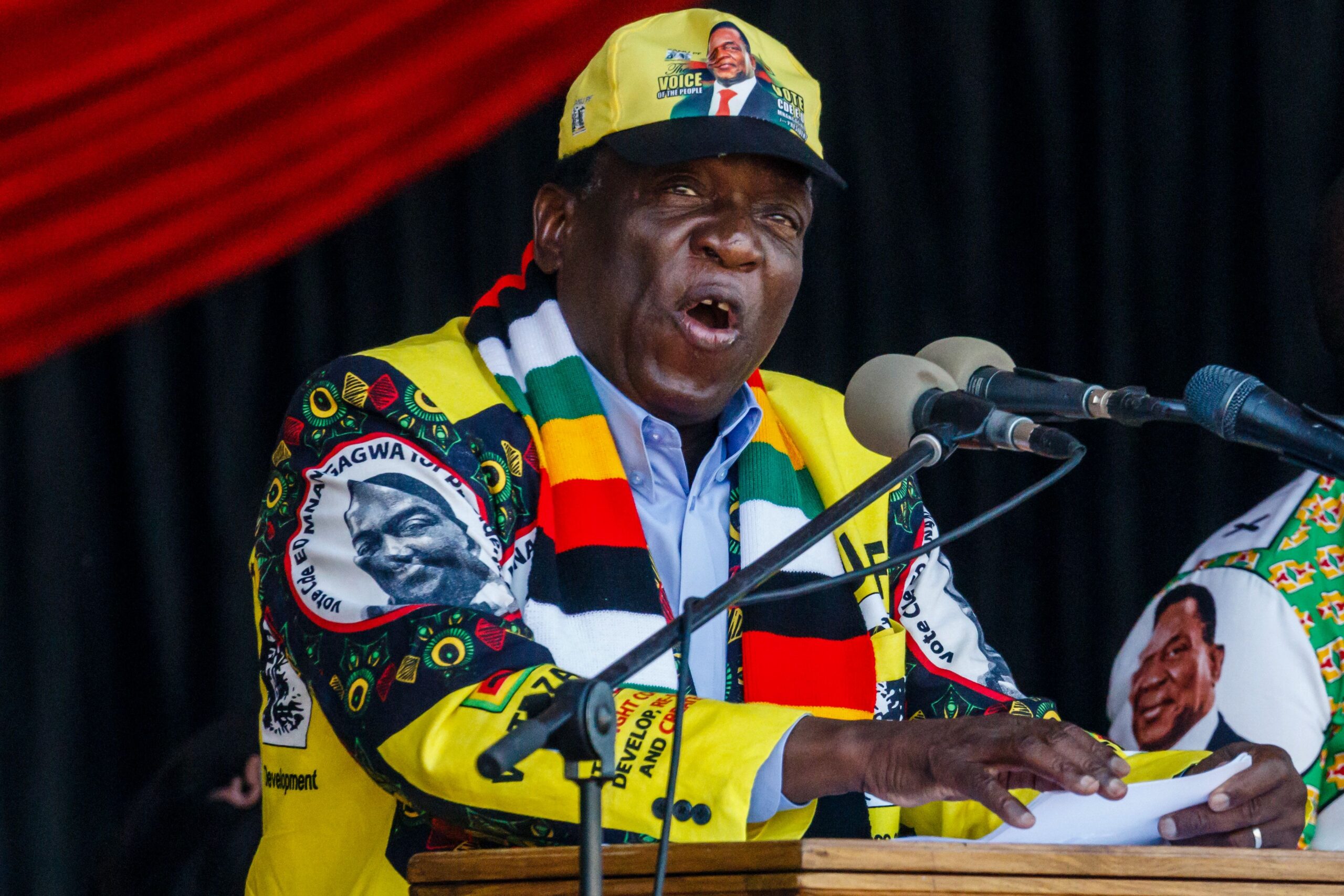A NEW wave of land seizures from indigenous farmers will worsen Zimbabwe’s international standing and entrench the country’s pariah state status as the government continues to disregard property rights, analysts have warned.
NYASHA CHINGONO
With Zimbabwe already under international isolation following widespread human rights violations in the past three years, including the killing and torture of innocent citizens, the new wave of land seizures are seen as a confirmation that President Mnangagwa is incapable of reform.
In fact, some critics believe Mnangagwa – who was Robert Mugabe’s enforcer, could be worse than his predecessor.
While the Mnangagwa regime has spent millions of dollars on public relations firms, the recent spate of land grabs will work against the efforts which have yielded precious little, if any, rewards.
Mnangagwa’s rhetoric as he sought to legitimise the 2017 military coup by claiming that it heralded a “New Dispensation” has been exposed as a cheap stunt. Action speaks louder than words and so far the coup has not given birth to a reformed system of governance.
Mantras like “Zimbabwe is open for business” now ring hollow in the face of violations and disregard for property rights.
Although Mnangagwa traversed the globe posturing as a reformer, the mask has fallen in the past three years, with Mnangagwa increasingly showing his true colours as he battles to contain rising discontent over his failure to turn around the country’s economic fortunes.
Corruption, state-sponsored brutality, torture and forced disappearance, lack of rule of law, among other evils, have continued under Mnangagwa, as have the lack of property rights.
Early this year, the government had to stop the eviction of more than 12 000 communal farmers in Chilonga, who had been ordered to vacate their ancestral land for a lucerne grass project spearheaded by Dendairy, a company owned by Mnangagwa’s cronies.
The public saw through the government’s double standards when it announced that the project would benefit the community, amid reports that the lucerne grass project was a cover up for the extraction of precious minerals.
Black farmers, including beneficiaries of the country’s chaotic land reform programme which began in 2000, have been at the receiving end of evictions, which have also targeted productive white farmers, Mnangagwa’s political rivals and Mugabe’s relatives.
At the inception of the “New Dispensation” in 2017, farmers around the country felt safer on their farms while some even dared to support Mnangagwa’s new regime.
During Mnangagwa’s meeting with businesspeople, mainly white farmers, in the run up to the 2018 elections, the Zimbabwean leader promised property rights and the creation of a conducive business environment.
Several months later, the government also offered compensation for dispossessed white farmers who had been disposed during Mugabe’s land reform programme.
Mnangagwa gained international goodwill, especially from former farmers who were willing to bury the hatchet and start over.
With Mnangagwa saying all the right things, both black and white farmers thought the country had turned the corner with regards to the land questions.
This translated to multiple partnerships between black and white farmers, collaborating to boost the country’s falling yields. But last year under the full glare of international media, commercial farmer Martin Grobler was evicted from his Ruwa farm last September.
Months after the eviction, Grobler and his wife Debbie are surviving at the benevolence of a relative, with their cattle currently on a rented plot.
Ironically, the Groblers were evicted from their farm by Ivy Rupindi, a civil servant in the ministry of Lands. Some white commercial farmers have been ordered to downsize their farms.
Countless land grabs have happened ever since Grobler was left out in the cold, the latest being international human rights lawyer Siphosami Malunga, who is battling to save his farm being eyed by a top Central Intelligence Organisation (CI0) boss who is behind the takeover of his land in Nyamandlovu.
Malunga alleges that his farm has been targeted because of his family’s principled stance on human rights and governance.
But with all the happenings around the country, Zimbabwe’s “open for business” mantra is ringing hollow in the ears of investors who insist on respect of property rights as a precursor to any funding.
International relations expert Ronald Chipaike said the international community’s hard-line stance towards Zimbabwe would continue in the wake of arbitrary land seizures.
“Land grabs will not help Zimbabwe’s international image, instead it hardens the position of those who have been observing if the new dispensation will protect and respect property rights. This gives them an excuse to continue holding a hardline position against Zimbabwe,” Chipaike said.
Political analyst Stephen Chan added that the land grabs border on elitism and marginalise the poor communities, like communal farmers.
“Land has long had a resonant value for Zimbabweans, linked to ancestry and spiritual beliefs. After the ending of white minority rule, this was mixed with the principles of restitution and reclamation. The power of all these principles has now eroded and, in their wake, we have an era of plain greed. Some of the projected land acquisitions do have public good as one benefit. But there are no clear plans to involve affected villagers in upscaled and new forms of production. In short, even in the lucerne grass case, what we see is elite acquisition,” Chan said.









